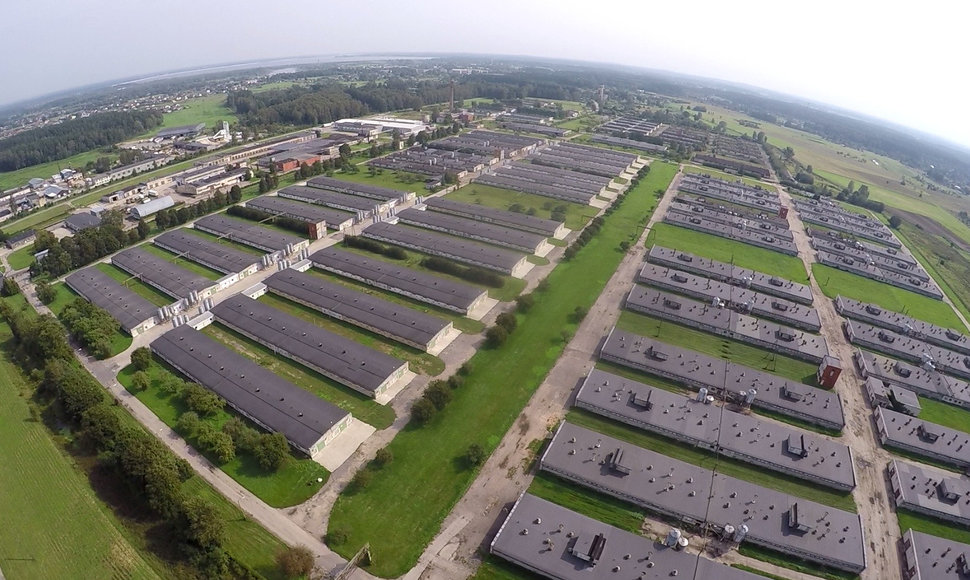‘Sustainable and environmentally-friendly production became a key competitive advantage. Both our consumers and business partners in the Baltic and Scandinavian regions expect the products to be made sustainably and responsibly. It is especially relevant in Scandinavia, where requirements for sustainability are increasingly high,’ said Andrius Pranckevičius, Chairman of the Board at AS Putnu Fabrika Ķekava and Deputy Chairman of the Board at AB Linas Agro Group.
According to A. Pranckevičius, achieving sustainability for the businesses which are involved in a production is not an easy task: ‘Although global poultry production has changed dramatically since the establishment of Putnu Fabrika Ķekava in 1967, and the environmental impact of producing the same amount of chicken has already been reduced by 50% since then, the food industry still requires high amounts of energy and water. For instance, our poultry companies annually consume more than 23,000 mega-watt-hours (MWh) of electricity, more than 700,000 cubic meters of water, and 80,000 MWh of gas. Currently we are looking for more sustainable resources, and in the future we will try to reduce energy consumption and become electricity producers’, he added.
In the next 3–4 years the Latvian poultry companies are planning to invest in various green projects which would allow ensuring sustainable production and would decrease the costs. It would also allow the companies to become more competitive and less energy-dependent.
‘We plan to implement an ambitious sustainability strategy until 2030 and have a clear action plan that covers 8 different areas. It includes increasing efficiency of resource management, such as water used for production; decreasing the Greenhouse effect by reducing the gas and waste emissions, and moving towards sustainable packaging and even higher standards of work safety and animal welfare. We aim to achieve significant progress in all 8 areas during the next 3-4 years,’ said A. Pranckevičius.
First step – a move towards the green energy
All Latvian poultry companies controlled by Linas Agro Group have signed a one-year deal with the largest energy supplier in the Baltic states Latvian electricity producer Latvenergo, operating under a brand Elektrum. As a result, from the 1st of July, 2021, the poultry companies will only use electricity produced from renewable energy sources. Elektrum supplies 100 percent green energy.
‘Although the decision to switch to green electricity due to a higher electricity tariff will cost us an additional 9,000 euros per year, we will make a first huge step towards sustainable energy and will reduce our carbon emissions. Meanwhile, next year we are planning to start producing our electricity from renewable energy sources to cover our needs’, added A. Pranckevičius.
The construction of solar power plant is scheduled for the next year
Next year Putnu Fabrika Kekava is planning to build a powerful 2 megawatts (MW) solar power plant. ‘We already did our homework. The project is ready, also permissions from the Kekava city council and the Latvian network of electricity distribution are received. According to our calculations, our solar panels will produce 13 percent of the electricity we require while the investment will pay off within 7 years. Experts calculate that the investment in a project of this size can be around 1,5 million euros,’ said Andrius Pranckevičius.
The company is currently planning to carry out the competition to choose the contractors, while the construction itself is scheduled to begin in the III quarter of 2022.
The solar power plant inside the territory of Putnu Fabrika Kekava will have 4,864 solar panels and will take up an area of more than 4 hectares. One 1 MW power module, which will take up to 21,000 square meters, will be installed next to the poultry houses. The second module (with the power of 0,99 MW) will be installed next to the meat processing houses.
This green energy project implemented by Linas Agro Group would become one of the biggest in Latvian industry. Currently, only one Latvian fish processing company have their own solar power plant, but it is about 10 times smaller than projected in Putnu Fabrika Kekava.
About Linas Agro Group poultry business
AB Linas Agro Group operates four poultry companies in Latvia: AS Putnu Fabrika Kekava, SIA Lielzeltini, SIA Broileks and SIA Cerova. The activities cover the full poultry cycle: hatching of chickens, rearing of broilers, production of poultry meat and its products, production of own feed, retail sale of chicken and its products. The products are sold under the brands ‘Kekava’, ‘Bauska’, ‘Top choice poultry’ and the label ‘Raised without antibiotics’. The consolidated revenue of the poultry business amounted to EUR 74 million in the financial year 2019/2020, operating profit was EUR 2.9 million. Last year, 46 thousand tons of live weight poultry has been produced.












